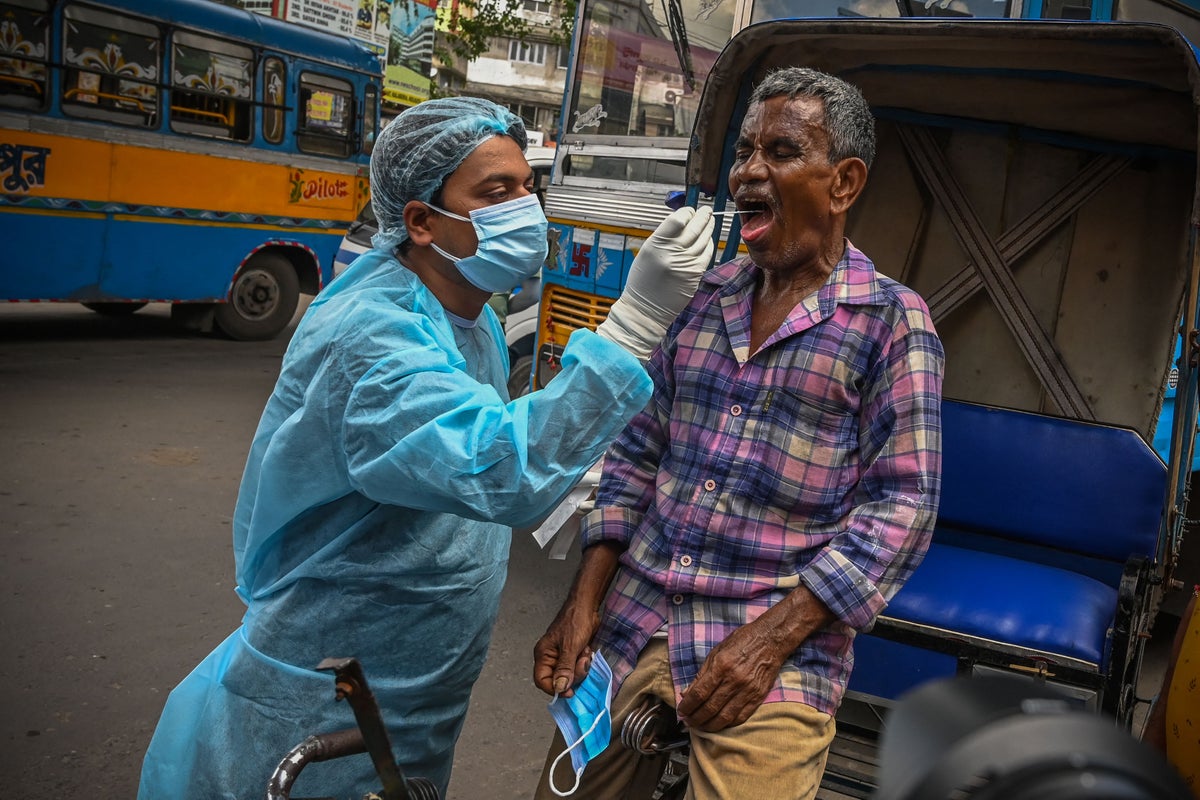
The spead of a new omicron subvariant has raised concern in India, the US and elsewhere as scientists fear that the new mutation may be able to get around immunity from vaccines and previous infections.
It is, however, unclear if this subvariant, called BA.2.75, could cause more serious disease than other omicron variants, including the globally prominent BA.5.
“It’s still really early on for us to draw too many conclusions,” said Matthew Binnicker, director of clinical virology at the Mayo Clinic in Rochester, Minnesota. “But it does look like, especially in India, the rates of transmission are showing kind of that exponential increase.”
It is yet to be determined if it will outcompete BA.5, he added.
The fact that the variant has been detected in parts of the world that have lower levels of virus surveillance “is an early indication it is spreading” fast, warns Shishi Lou, head of infectious diseases for Helix, a company that supplies viral sequencing information to the US Centers for Disease Control and Prevention.
The latest mutation of Covid-19 has been spotted in several different states in India and appears to be spreading faster than other variants, said Lipi Thukral, a scientist at the Council of Scientific and Industrial Research-Institute of Genomic and Integrative Biology.
So far, it has been reported in several Indian states including Kerala, Tamil Nadu, Karnataka, Andhra Pradesh, Telangana, Uttar Pradesh, Maharashtra, as well as the national capital, Delhi.
It has also been detected in 10 other countries, including the United Sstates , Australia, Germany, the UK and Canada.
Some of the mutations in the new variant are related to the receptor-binding domain of the spike protein, said WHO’s chief scientist Dr Soumya Swaminathan.
“This being the key part of the virus that attached itself to the human receptor, we need to keep a watch on its behaviour. But it’s still too early to tell if the subvariant has properties of additional immune invasion or is clinically more severe,” she told the Times of India.
The scientists working with the Indian Sars-CoV-2 Genomics Consortium (Insacog), a genomic surveillance agency functioning under India’s health ministry, said that those infected with BA.2.75 were either asymptomatic or had mild Covid, adding that they have not yet observed any infection clusters of the subvariant.
The researchers said vaccines and boosters are the best defence against infection.
“Some may say, ‘Well, vaccination and boosting hasn’t prevented people from getting infected.’ And, yes, that is true,” said Dr Binnicker.
“But what we have seen is that the rates of people ending up in the hospital and dying have significantly decreased. As more people have been vaccinated, boosted or naturally infected, we are starting to see the background levels of immunity worldwide creep up.”
Additional reporting by agencies







